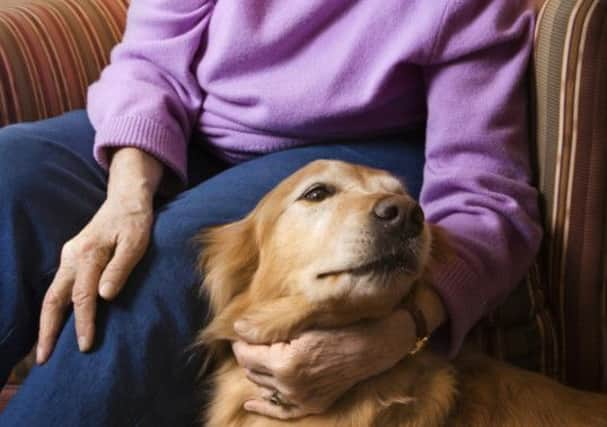How making your own decisions can prove best medicine


Geting away from it all by the seaside, going for a long walk with the dog and singing have long been seen as wonderful for wellbeing, but hardly medicinal. Until now.
In a few month’s time, some long-term sick and disabled people will be entitled to ask the NHS for money allocated to their ongoing care to be spent on improving their health in the way they see fit. With input from their health care clinicians, patients could choose to spend the money in these ‘personal health budgets’ on anything from the traditional care they’ve always had, to buying a dog for companionship, singing classes to help improve breathing or even booking a quiet break away from the stresses of life.
Advertisement
Hide AdAdvertisement
Hide Ad“The idea is that you can do anything with it that meets your health needs,” says Vidhya Alakeson, mental health lead for NHS England’s personal health budgets delivery programme.
“You identify what your health goals are, and how you might meet them. The guidelines have very few restrictions, so anything that’s legal and isn’t alcohol, cigarettes is allowed.”
Alakeson also stresses that those entitled to personal health budgets will still use their GP, be prescribed medicines and be admitted to hospital as normal.
“This is not saying we’re going to take all the money we would have spent on you in the NHS and tell you to get lost and sort it out for yourself. Personal health budgets are just the money that’s spent on people’s ongoing needs.”
Advertisement
Hide AdAdvertisement
Hide AdPilot schemes of these budgets ran throughout the country from 2009 to 2012 with very positive results.
Successful examples included people with mental health conditions, who in the past had ended up in hospital, using their budgets to stay in B&B accommodation.
“It’s much cheaper,” explains Alakeson. “And because people with mental health problems often don’t really want to be in hospital, the outcomes tend to be better too.”
People can also use the money to join a gym or buy exercise equipment to manage their weight – like a man with motor neurone disease who bought an adapted bike to help him remain active. Massage and alternative therapies like reiki can also be chosen to help manage pain, or to help people with mental health conditions relax.
Advertisement
Hide AdAdvertisement
Hide AdMusic and singing was another popular option. A man who would previously have gone to a hospital-based rehabilitation programme for the long-term lung disease COPD chose to have singing lessons instead, to stabilise his breathing.
“This also had the spin-off of being a lot more sociable, so rather than being lonely and isolated at home, the person was able to get involved with singing groups and develop friendships,” says Alakeson. “By breaking out of the hospital-based service you can get a lot more community connection for people, so it has a double positive.”
The benefits from owning a dog are equally championed by the Dogs Trust charity, which has even compiled a Canine Charter for Human Health from research studies.
Dogs Trust veterinary director Paula Boyden says research shows that on top of reducing loneliness and depression by providing companionship, owning a dog can boost the immune system, reduce blood pressure and subsequently reduce the chance of having a stroke.
Advertisement
Hide AdAdvertisement
Hide Ad“It has been proven that dog owners make fewer visits to GPs too, so we’ve launched our Dog Prescription to encourage more GPs and health workers to prescribe a daily dose of dog,”she says.
Amid all the clear strengths of personal health budgets though, there is one negative – namely the fear that people may abuse the money they are given.
But Alakeson is keen to point out the pilot schemes proved no need for such concerns, partly because there are many checks and balances, such as money not always being paid up front.
Receipts also have to be provided when goods or services are bought with the personal health budget (which will usually be given in monthly or quarterly payments) “to reduce the risk that someone might take all the money up front and spend it on a trip to Vegas”.
Advertisement
Hide AdAdvertisement
Hide Ad“People get this money because they have a condition that needs to be managed, and they have a strong incentive to use it well,” Alakeson argues.
“Rather than frivolous expenditure, what you see is that people are much more prudent than the system is, as they have a vested interest in spending it well, and often feel quite grateful for the opportunity to do something different with it.”